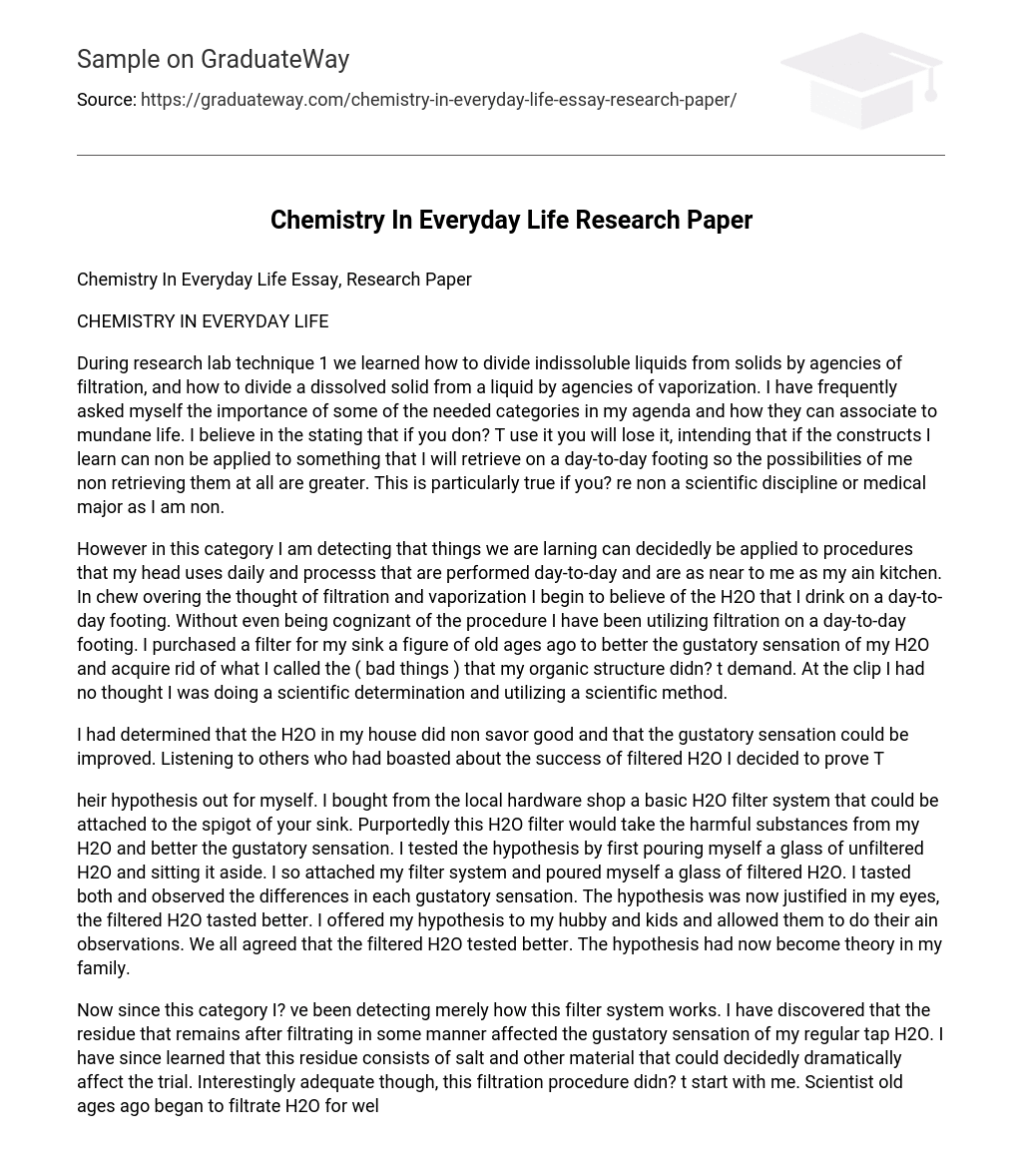Chemistry has a noteworthy influence on our everyday lives, even if we are not conscious of it. It is present in different areas of our daily routines and engagements, ranging from the food we consume to the items we utilize. By comprehending the fundamentals of chemistry, we can make well-informed choices and acknowledge its deep-seated effect on us.
Chemistry plays a crucial role in our day-to-day existence.
While conducting research in lab technique 1, we studied filtration and vaporization. Filtration is a method used to separate solids from insoluble liquids, while vaporization is employed to separate dissolved solids from liquids. I often contemplate the applicability of these principles in daily life. I firmly believe that if knowledge is not regularly applied, it will diminish over time. This is especially true for me since I am not pursuing a science or medical major.
The concepts we are learning in this category can be applied to everyday procedures and processes that are as familiar to me as my own kitchen. When I think about filtration and vaporization, the first thing that comes to mind is the water I drink every day. Without my knowledge, I have been using filtration in my routine without even realizing it. A few years ago, I bought a sink filter with the goal of improving the taste of my water and removing what I referred to as “undesirable elements” for my body. Little did I know that this was actually a scientific decision and an application of a scientific method.
After noticing the unpleasant taste of the water in my house, I felt inspired to enhance its flavor. Consequently, upon hearing favorable feedback about the advantages of filtered water from others, I opted to experiment with it.
To test their hypothesis, I purchased a basic H2O filter system and conducted an experiment. The filter system easily attached to the sink spigot and claimed to remove harmful substances from the water while improving its taste. First, I poured a glass of unfiltered water and set it aside. Then, I connected the filter system and poured myself a glass of filtered water. When I tasted both samples, the difference in flavor was immediately noticeable. The filtered water had a much better taste, confirming my original hypothesis. To further validate this theory, I shared my findings with my husband and kids for their own observations. We all agreed that the filtered water tasted superior. Therefore, this hypothesis has now become an established theory within our family.
Since I started using this filter system, I have been observing how it affects the taste of my regular tap water. I have found that the residue left after filtering has an impact on the taste. This residue includes salt and other substances that can significantly alter the flavor. Interestingly, this filtration process was not started by me. Many years ago, scientists began filtering water for health reasons. They removed elements that are harmful to our bodies, such as chloride, through our complex water systems to ensure the water we drink is safe. Without this process, cities would face the same fate as Jamestown did centuries ago – with mass casualties.
I was unaware that scientific discipline, which is essential in my daily life, was the proper term for it.





